Abdullah Kayi
Asynchronous Decentralized Distributed Training of Acoustic Models
Oct 21, 2021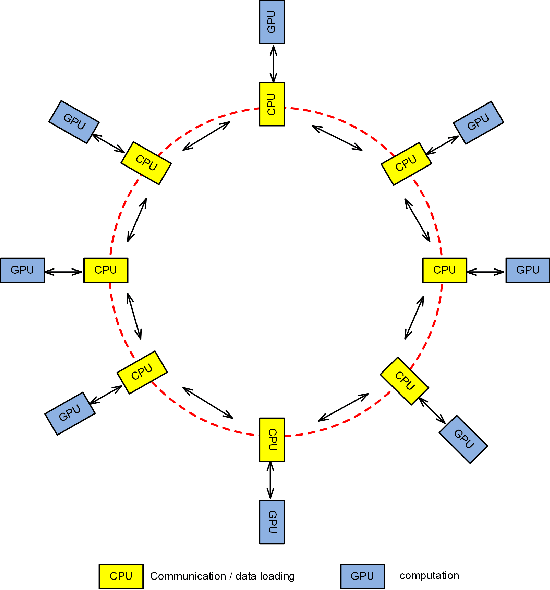
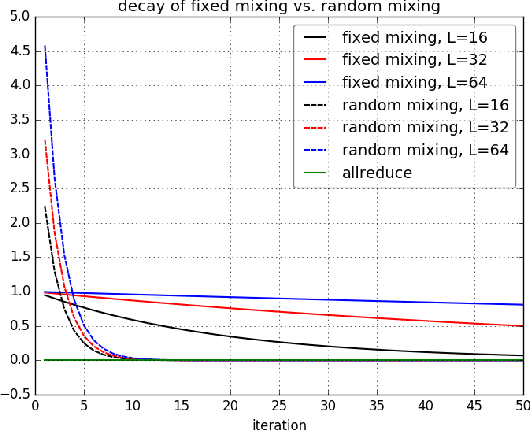
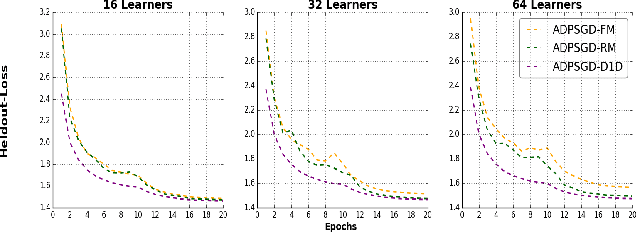
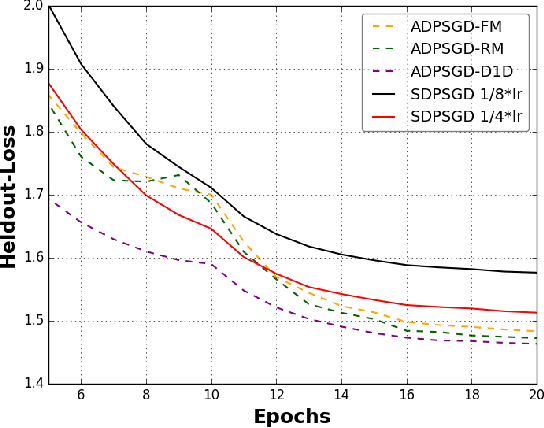
Abstract:Large-scale distributed training of deep acoustic models plays an important role in today's high-performance automatic speech recognition (ASR). In this paper we investigate a variety of asynchronous decentralized distributed training strategies based on data parallel stochastic gradient descent (SGD) to show their superior performance over the commonly-used synchronous distributed training via allreduce, especially when dealing with large batch sizes. Specifically, we study three variants of asynchronous decentralized parallel SGD (ADPSGD), namely, fixed and randomized communication patterns on a ring as well as a delay-by-one scheme. We introduce a mathematical model of ADPSGD, give its theoretical convergence rate, and compare the empirical convergence behavior and straggler resilience properties of the three variants. Experiments are carried out on an IBM supercomputer for training deep long short-term memory (LSTM) acoustic models on the 2000-hour Switchboard dataset. Recognition and speedup performance of the proposed strategies are evaluated under various training configurations. We show that ADPSGD with fixed and randomized communication patterns cope well with slow learners. When learners are equally fast, ADPSGD with the delay-by-one strategy has the fastest convergence with large batches. In particular, using the delay-by-one strategy, we can train the acoustic model in less than 2 hours using 128 V100 GPUs with competitive word error rates.
Improving Efficiency in Large-Scale Decentralized Distributed Training
Feb 04, 2020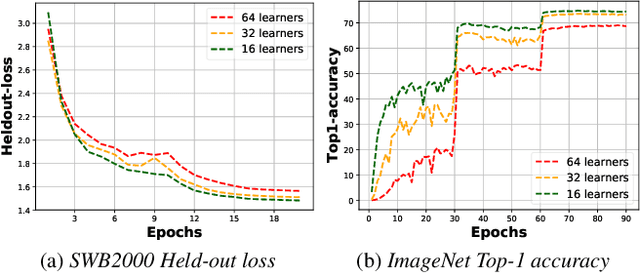

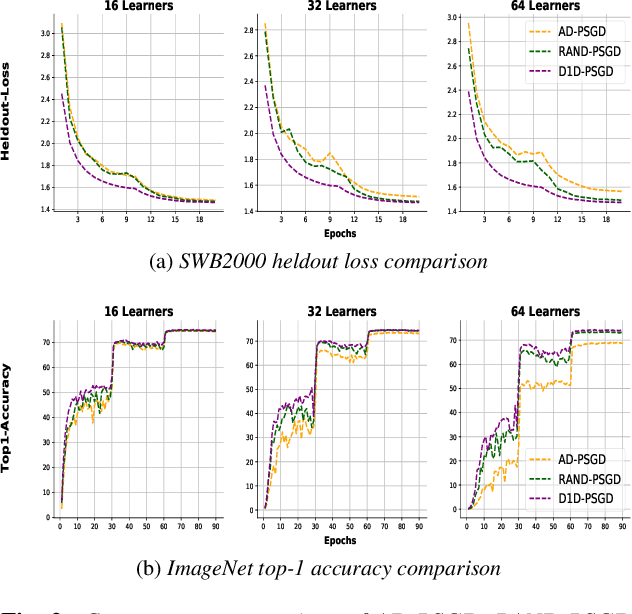

Abstract:Decentralized Parallel SGD (D-PSGD) and its asynchronous variant Asynchronous Parallel SGD (AD-PSGD) is a family of distributed learning algorithms that have been demonstrated to perform well for large-scale deep learning tasks. One drawback of (A)D-PSGD is that the spectral gap of the mixing matrix decreases when the number of learners in the system increases, which hampers convergence. In this paper, we investigate techniques to accelerate (A)D-PSGD based training by improving the spectral gap while minimizing the communication cost. We demonstrate the effectiveness of our proposed techniques by running experiments on the 2000-hour Switchboard speech recognition task and the ImageNet computer vision task. On an IBM P9 supercomputer, our system is able to train an LSTM acoustic model in 2.28 hours with 7.5% WER on the Hub5-2000 Switchboard (SWB) test set and 13.3% WER on the CallHome (CH) test set using 64 V100 GPUs and in 1.98 hours with 7.7% WER on SWB and 13.3% WER on CH using 128 V100 GPUs, the fastest training time reported to date.
A Highly Efficient Distributed Deep Learning System For Automatic Speech Recognition
Jul 10, 2019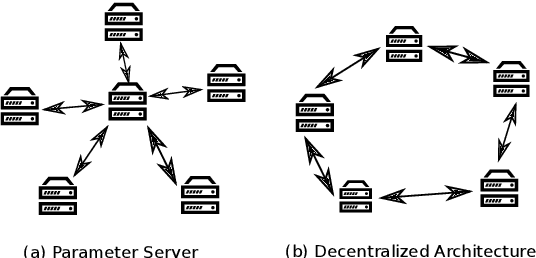

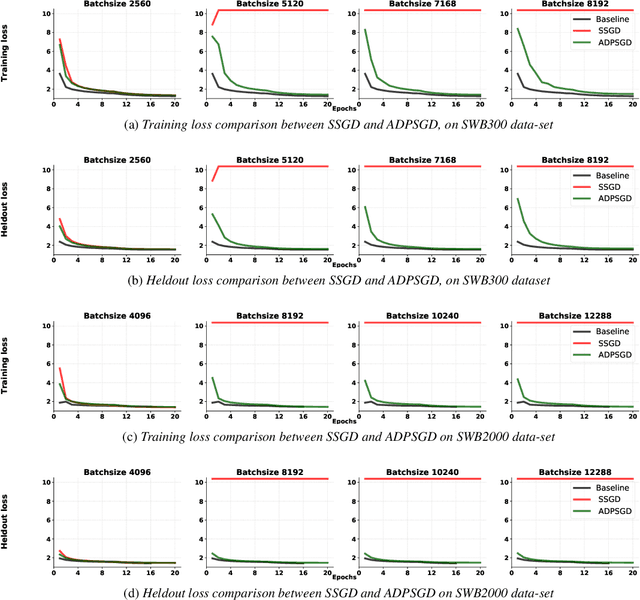
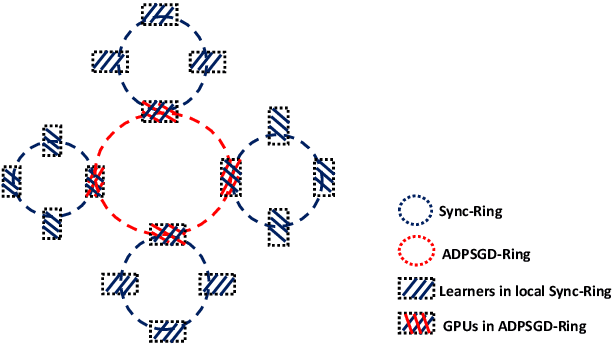
Abstract:Modern Automatic Speech Recognition (ASR) systems rely on distributed deep learning to for quick training completion. To enable efficient distributed training, it is imperative that the training algorithms can converge with a large mini-batch size. In this work, we discovered that Asynchronous Decentralized Parallel Stochastic Gradient Descent (ADPSGD) can work with much larger batch size than commonly used Synchronous SGD (SSGD) algorithm. On commonly used public SWB-300 and SWB-2000 ASR datasets, ADPSGD can converge with a batch size 3X as large as the one used in SSGD, thus enable training at a much larger scale. Further, we proposed a Hierarchical-ADPSGD (H-ADPSGD) system in which learners on the same computing node construct a super learner via a fast allreduce implementation, and super learners deploy ADPSGD algorithm among themselves. On a 64 Nvidia V100 GPU cluster connected via a 100Gb/s Ethernet network, our system is able to train SWB-2000 to reach a 7.6% WER on the Hub5-2000 Switchboard (SWB) test-set and a 13.2% WER on the Call-home (CH) test-set in 5.2 hours. To the best of our knowledge, this is the fastest ASR training system that attains this level of model accuracy for SWB-2000 task to be ever reported in the literature.
 Add to Chrome
Add to Chrome Add to Firefox
Add to Firefox Add to Edge
Add to Edge